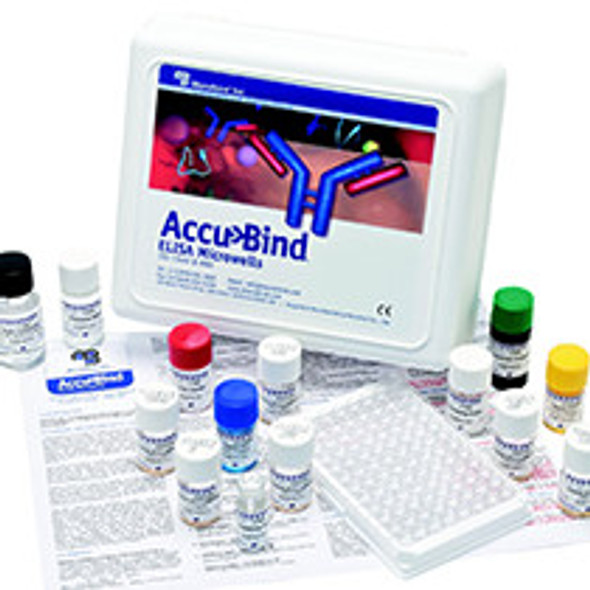Description
Insulin
Insulin is a hormone that is produced and stored in the beta cells of the pancreas. Digested food breaks down into basic components such as glucose, a main source of energy for the body. Insulin is vital for the transportation and storage of glucose at the cellular level; it helps regulate blood glucose levels and has a role in lipid metabolism.
When blood glucose levels rise after a meal, insulin is released to allow glucose to move into tissue cells, especially muscle and adipose (fat) cells, where is it is used for energy production. Insulin then prompts the liver to either store the remaining excess blood glucose as glycogen (for short-term energy storage) and/or to use it to produce fatty acids. These are eventually used by fat cells (adipose tissue) to synthesize triglycerides to form the basis of a longer term, more concentrated form of energy storage.
Without insulin, glucose cannot reach most of the body’s cells. Without glucose, the cells starve and blood glucose levels rise to unhealthy levels. This can cause disturbances in normal metabolic processes that may eventually lead to a life-threatening condition called a diabetic coma.
People with type 1 diabetes produce very little insulin and so often require supplementation with insulin injections several times a day. People with type 2 diabetes usually can produce insulin but over time and/or with obesity, their cells may become resistant to insulin. They may therefore need oral medications that increase the sensitivity of their body’s cells to insulin or that stimulate their body to produce more insulin. Type 2 diabetics may also eventally need to supplement with insulin injections to achieve normal glucose levels.
Insulin and glucose levels must be in balance. Hyperinsulinemia is an excess amount of insulin in the blood. Other than in insulin resistance, this is most often seen in persons with insulinomas or with an excess amount of administered insulin. This causes hypoglycemia, which can lead to sweating, palpitations, hunger, confusion, blurred vision, dizziness, fainting and seizures. Since the brain is totally dependent on blood glucose as an energy source, severe glucose deprivation due to hyperinsulinemia can lead fairly quickly to insulin shock and death.
Additional Information
Method: |
Enzyme Immunoassay, Colormetric |
Principle: |
Sandwich Assay, Streptavidin-Coated Plate |
Calibrators: |
0, 5, 25, 50, 100, 300 µlU/ml (1ST IRP 66/304) Dried |
Sample: |
50 µl |
Sensitivity: |
0.025 ng/ml |
Reading: |
450 nm |
Total Time: |
135 Minutes |
Shelf Life: |
18 Months |






